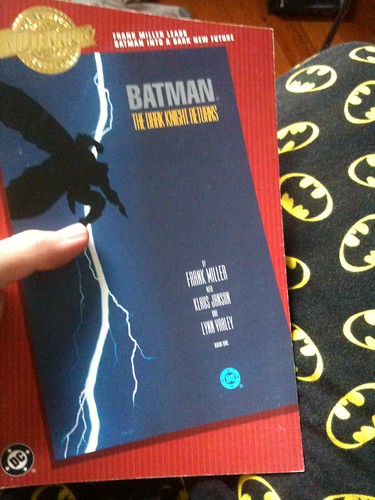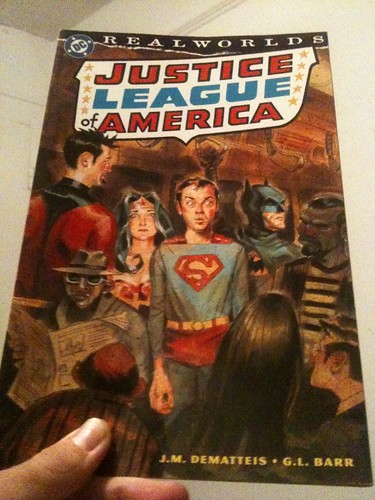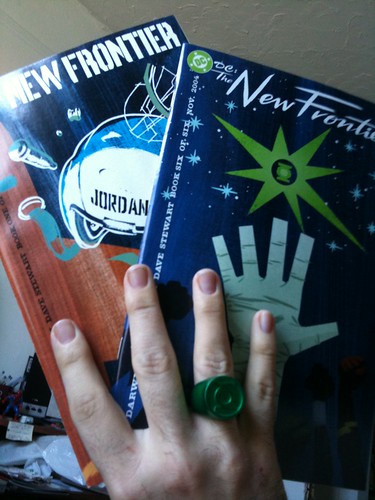Why?
We ask this awful little question of our art and our artists often. Why did you make this choice? Why didn't we get to see that thing? Why does this entire thing exist?
(Ask me someday about the time I met Rick Remender. Boy, did I put my foot in my mouth!)
You're far and away not going to be the first or the last to ask that question about the current epic Batman saga from Scott Snyder and Greg Capullo: "Zero Year," yet another reimagining/updating of Bruce Wayne's return to his corrupt hometown and first steps toward becoming the world's greatest crime-fighter.
 |
| The Kane/Finger Golden Age original |
I asked it. Vehemently, actually. Why measure yourself directly against the greats of the past? Why take the risk?
But I'm reminded of one of my proudest academic moments: I sat discussing "Othello" in a freshman year Shakespeare class at Bard College and another student questioned Shakespeare's placement of a long side-narrative soliloquy spoken by the poor, much-abused O himself, pretty much right in the middle of the otherwise fast-paced big suicidal finale. 'Why do this whole side-monologue-thing?' my fellow student asked. And he wasn't entirely wrong. But I blurted out something along the lines of: Because it's FUCKING BADASS! That's why! He put it in because it's good!
Now we're less than half-way through the Snyder/Capullo team's eleven-issue-long-origum-opus, but I'm going to go out on a limb and declare it to be GOOD.
The third issue makes remarkably intelligent and brave storytelling chronology choices I've never seen in comics before. American superhero comics, certainly. These three panels below are in their intended order but Panel 2 takes place before both Panel 1 and Panel 3. Somehow this works, despite all sanity.
Seriously, read issue #23 if you read nothing else of the story. It's pretty amazing. If you want to hear more about my thoughts on the quality of the issues, it just so happens to be the subject of the first episode of my new podcast recorded in comics-related NYC locales reviewing recent comics related to those locales.
(Listen here, I'd love it if you do!)
(Listen here, I'd love it if you do!)
 |
| Capullo's hologram bats... |
I suppose that shouldn't be so strange since I've said for years that although "Year One" is good, it's not really Batman's story but James Gordon's. Until the Miller/Mazzucchelli story, Commissioner Gordon had been a paper-thin character. Miller introduced us to LIEUTENANT Gordon, made him ex-military, gave him an ex-wife, and made him extremely angry. As insipid as that makes it sound, he lives and breathes as a vivid personality in the books.
So, for example, we've been given very little of Gordon so far in "Zero Year." I have no idea where he comes from or if he has a pregnant wife fed-up with his workaholism, but he is certainly angry. And tough. The few times we see Snyder's Gordon have had added weight for me because nothing has contradicted Miller's Gordon. They are, so far, identical characters.
The same is nearly true of Bruce and Alfred. And, more importantly, their relationship.
In-between page 8 and page 22 of the first issue of the 1980s "Year One", Bruce is put through a torturous evening his first night as a crime-fighter that forces him to rethink his entire plan. Until he sees a bat fly into his father's study and realizes he needs to make people fear him on a primal level if he's going to win his war. A similar event happens over in the entire third issue of "Zero Year", in the aftermath of just about everything in issues #21 and #22.
3 panels- expanded to 14 pages- expanded to roughly a full 22-page comic-book.
None of the three make it explicitly clear that all the events depicted happen on the same night or that they don't, which keeps it loose. Most importantly, we see a scene of Alfred and Bruce after the resourceful butler has performed the life-saving surgery Miller hinted at and the scene is sad, beautiful, and rings true. I imagine the scenes Snyder wrote fitting precariously in-between the pages Miller wrote, the pages Miller wrote filling-out the panels Bob Kane wrote, and we get something even more powerful than each was separately. Seventy-plus years in the making.
(I actually wrote an editorial years ago about how awesome it is when this happens. Intertextuality, yo!)
3 panels- expanded to 14 pages- expanded to roughly a full 22-page comic-book.
None of the three make it explicitly clear that all the events depicted happen on the same night or that they don't, which keeps it loose. Most importantly, we see a scene of Alfred and Bruce after the resourceful butler has performed the life-saving surgery Miller hinted at and the scene is sad, beautiful, and rings true. I imagine the scenes Snyder wrote fitting precariously in-between the pages Miller wrote, the pages Miller wrote filling-out the panels Bob Kane wrote, and we get something even more powerful than each was separately. Seventy-plus years in the making.
(I actually wrote an editorial years ago about how awesome it is when this happens. Intertextuality, yo!)
The answer to this article's initial question could be many-fold. Snyder thought he deserved a crack at it. (He may as well be right.) Capullo wanted to do it. Snyder thought "Batman: Year One" didn't have enough Batman in it. (I'd say he's right.) DC Editorial figured it would sell them some comics. (They definitely turned out to be right.) Some fan somewhere asked for it. Liberals hate Frank Miller now. Everyone agreed it could be badass.
Who knows? But, in other words...
Why not?
~ @JonGorga









